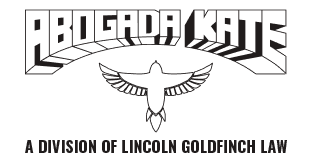A Naturalization Attorney Assists In Completing Form N-400
Naturalization is an important step toward obtaining citizenship in the United States. Engaging a Naturalization Attorney can significantly ease the process. Becoming a citizen empowers a person to vote, reunite with family, and enjoy other advantages. Without the right assistance, the procedure may be intimidating and complicated.
At the heart of this process is Form N-400, also known as the naturalization application. It serves as the official request to become a citizen of the United States. This article offers a detailed guide to completing Form N-400, providing essential information, tips, and insights. It aims to help applicants successfully navigate their journey to citizenship.

Seeking The Guidance Of A Naturalization Attorney
U.S. citizenship unlocks a brighter future, but navigating the naturalization process requires careful preparation. Thus, a naturalization attorney ensures that the applicant meets the requirements set by U.S. Citizenship and Immigration Services (USCIS). Once done, the lawyer takes over and plays a crucial role throughout the process, like the following:
Legal Knowledge
Attorneys for naturalization offer crucial legal knowledge to guarantee that an applicant fulfills all USCIS standards. They provide advice on complicated matters, including residence requirements and the standards for exhibiting moral rectitude. This includes advising clients on gathering the necessary documents and navigating potential application hurdles.
Getting Ready For An Application
When it comes to helping candidates prepare and submit Form N-400, naturalization lawyers are invaluable. They assist in ensuring that the form is accurately filled out, including the required supporting documentation, while meeting deadlines. Having this thorough preparation is essential to making a compelling case for USCIS.
Representation
A lawyer will accompany the applicants during USCIS interviews and hearings. They can go through other critical stages of the naturalization process. Lawyers advocate for their clients’ rights and interests, ensuring they receive adequate support and preparation throughout the legal proceedings. This representation helps alleviate the stress and uncertainty often associated with formal interactions.
Appeals
Attorneys are invaluable in assisting with the appeals process following a denial of the application. They analyze the grounds for denial, strategize the best approach, and draft a comprehensive appeal to challenge the decision. Leveraging their skills in immigration law, attorneys effectively represent their clients in court to overturn denials and achieve favorable outcomes.
These are a few of the many services that a lawyer for naturalization provides to its clients. With constant communication and cooperation, processing the Green Card is possible.
Understanding Naturalization & Its Eligibility
Naturalization is the formal process through which a non-citizen becomes a citizen of the United States. It involves meeting specific criteria established by the USCIS. To become a U.S. citizen through naturalization, individuals must meet specific eligibility criteria. Before beginning the naturalization process, applicants must meet certain eligibility criteria:
Residency Requirement
Applicants typically need to have held Green Cards. To qualify, they must demonstrate lawful permanent resident status for at least five years. They also need to reside in the state or USCIS district overseeing their area for at least three months.
Continuous Residence
To become a US citizen through naturalization, an applicant must prove continuous residence for a specific period. This means having a permanent dwelling place in the US for that time.
Generally, absences of less than 6 months won’t disrupt an applicant’s residence, but longer absences can. An absence of 6 months to a year requires evidence that they didn’t abandon their U.S. residence. Being away for more than a year breaks continuous residence, with exceptions for specific government or religious work abroad. If interrupted, an applicant can rebuild this requirement.
Physical Presence
Naturalization requires a physical presence in the U.S. for a set time. This is half the duration of an applicant’s continuous residence requirement. The most common application needs at least 30 months of physical presence before applying. Even short U.S. departures count towards this requirement.
Good Moral Character
Demonstrating good moral character is crucial for naturalization. It has to encompass adherence to laws, payment of taxes, and upholding ethical standards. USCIS evaluates applicants’ conduct to ensure they meet these criteria consistently over the required period.
An Introduction To U.S. History & Government
The citizenship test evaluates candidates’ knowledge of U.S. history, government, and civics through a series of questions. Additionally, candidates must demonstrate basic proficiency in English. This is eventually assessed during the naturalization interview unless exempted.
Understanding the naturalization process for U.S. citizenship begins with meeting USCIS eligibility criteria. This confirms applicants’ established presence in the U.S. and prepares them for citizenship.
Navigating Form N-400
Obtaining U.S. citizenship is a common goal, yet the application process can be intimidating due to its requirements. This section dives into the citizenship application form and offers tips for completing it. It emphasizes consulting with an immigration attorney for a smoother path to citizenship.
What Is The Purpose & Significance Of The Form?
The N-400 Form is crucial for lawful permanent residents seeking U.S. citizenship. It gathers essential details to assess naturalization eligibility. Per USCIS guidelines, accuracy and honesty in completing the form are vital to prevent delays or application denial.
The application form holds immense significance as the official gateway to U.S. citizenship. It serves the following purposes:
Formal Declaration
It acts as your formal declaration of intent to become a U.S. citizen. By submitting it, you’re expressing your desire and outlining your qualifications for citizenship.
Eligibility Assessment
The form functions as a screening tool for USCIS. The information you provide on residency history, good moral character, and language proficiency allows them to assess whether you meet the baseline requirements for naturalization.
Application Basis
The data you provide on Form N-400 is the basis for your whole naturalization application. It prepares the groundwork for additional processing, interviews, and, in the end, the citizenship decision.
In essence, the citizenship application is the foundation of your entire naturalization. It sets the stage for further processing, interviews, and, ultimately, the decision on your citizenship status.
Tips & Best Practices For Form N-400 Completion
Mastering the requirements of Form N-400 is essential for individuals pursuing U.S. citizenship. This guide provides indispensable advice to streamline the completion process. Therefore, this increases the chances of a successful application. From comprehending USCIS criteria to assembling essential documentation, these tips are a must.
Carefully Review The Instructions
Prior to commencing Form N-400, applicants should meticulously examine the USCIS guidelines accompanying the form. These guidelines delineate precise requirements and acceptable documentation. It also provides instructions for properly completing each section.
Collect The Required Documents
Accurate documentation, including a Green Card copy, passport-style photos, and birth certificate, is crucial for supporting details in Form N-400. Applicants should also gather marriage certificates, tax returns, and other relevant records showing eligibility for naturalization.
Consider Legal Assistance
Navigating naturalization and its application form can be tricky, especially for complex cases. An immigration attorney provides guidance, ensuring all requirements are met and addressing any roadblocks.
Thoroughly Review & Verify
Double-check your naturalization application before submitting it. Errors can delay or deny the application. Consider having a lawyer review it for peace of mind.
Proper completion and timely submission of Form N-400 are essential for those pursuing U.S. citizenship. Thoroughly reviewing all information before submission ensures accuracy, minimizing the risk of delays or denials.
A Naturalization Attorney Guides You On The Process
The process of being naturalized unfolds clear steps crucial for eligibility determination. Here are seven steps to follow to make the process successful:
The Preparation
Citizenship aspirants frequently consult a naturalization lawyer before submitting their application. This is done to ensure they meet all requirements and handle any potential issues. Attorneys can offer vital guidance when it comes to obtaining the required paperwork.
Submitting The N-400 Form
The Application for Naturalization form, the necessary paperwork, and the filing fee are sent to USCIS. After reviewing the application, USCIS will arrange biometrics, such as pictures or fingerprints. This is important to confirm identity and run background checks.
Biometric Schedule
To submit their fingerprints and a photo, applicants must show up for a biometrics appointment. The FBI and other government organizations use this information for background checks.
Citizenship Inquiry
Applicants are scheduled for an interview with a USCIS officer following biometrics. A review of the N-400 application, a civics exam, and an English language test are usually included in the interview process.
Citizenship Examinations
The civics exam tests knowledge of American laws, government, and history. It requires applicants to answer several questions out of a hundred. The English language exam assesses speaking, reading, and writing skills.
Oath Of Allegiance
If their application is accepted, candidates swear the Oath of Allegiance to America at a naturalization ceremony. This oath is a serious commitment to protect American ideals, laws, and the Constitution.
Getting The Certificate Of Citizenship
Successful candidates receive a citizenship certificate after the naturalization ceremony as proof of their U.S. citizenship. This certificate is required for obtaining other citizenship privileges, such as a U.S. passport.
Following these crucial steps maximizes an applicant’s chances of success.
With the support of a skilled immigration attorney, a complex journey turns into a smooth path to the American dream.
Tapping The Skills Of Abogada Kate

A Naturalization Lawyer from an immigration firm plays a crucial role in the path to U.S. citizenship. Abogada Kate provides services to navigate complex legal requirements, ensuring accurate completion of paperwork and timely submissions. They also represent applicants during critical USCIS interactions, safeguarding their rights and advocating effectively.
In cases of denial, they offer strategic guidance for appeals, leveraging their immigration law knowledge to pursue a favorable outcome. Partnering with the right legal support enhances the process, offering applicants confidence and efficient support toward achieving U.S. citizenship.
Summary
Achieving a Green Card and U.S. citizenship unlocks important rights such as voting and family sponsorship. Yet, navigating this process alone can be challenging. A naturalization attorney from Abogada Kate, offers competence in meeting USCIS standards. They assist with interviews, ensure accurate completion of Form N-400, and provide strategic advice in case of application denial.
Get in touch with their team of skilled lawyers. Their guidance ensures compliance with legal requirements and enhances the chances of successful naturalization. Ultimately, they support applicants on their path to becoming U.S. citizens.


